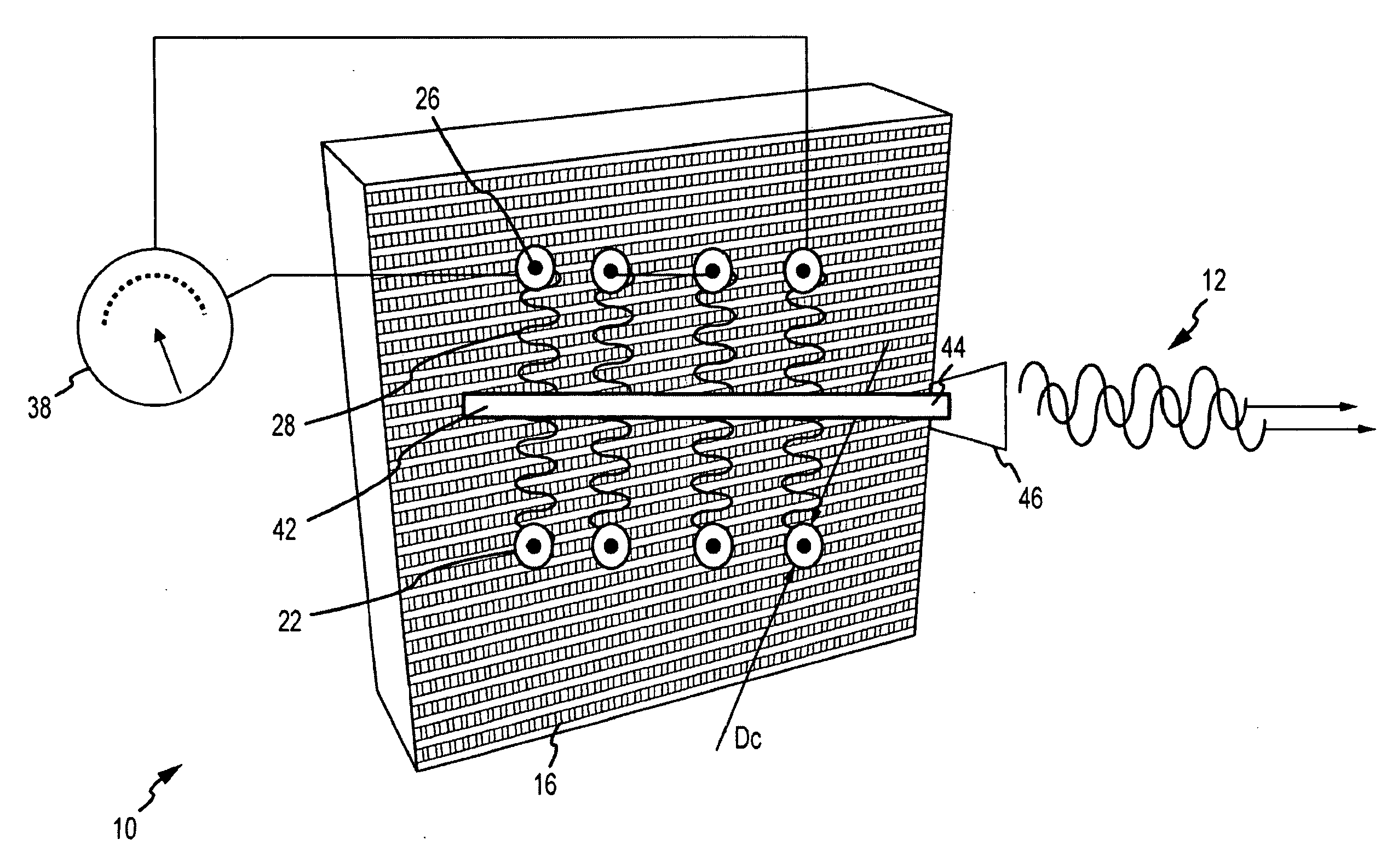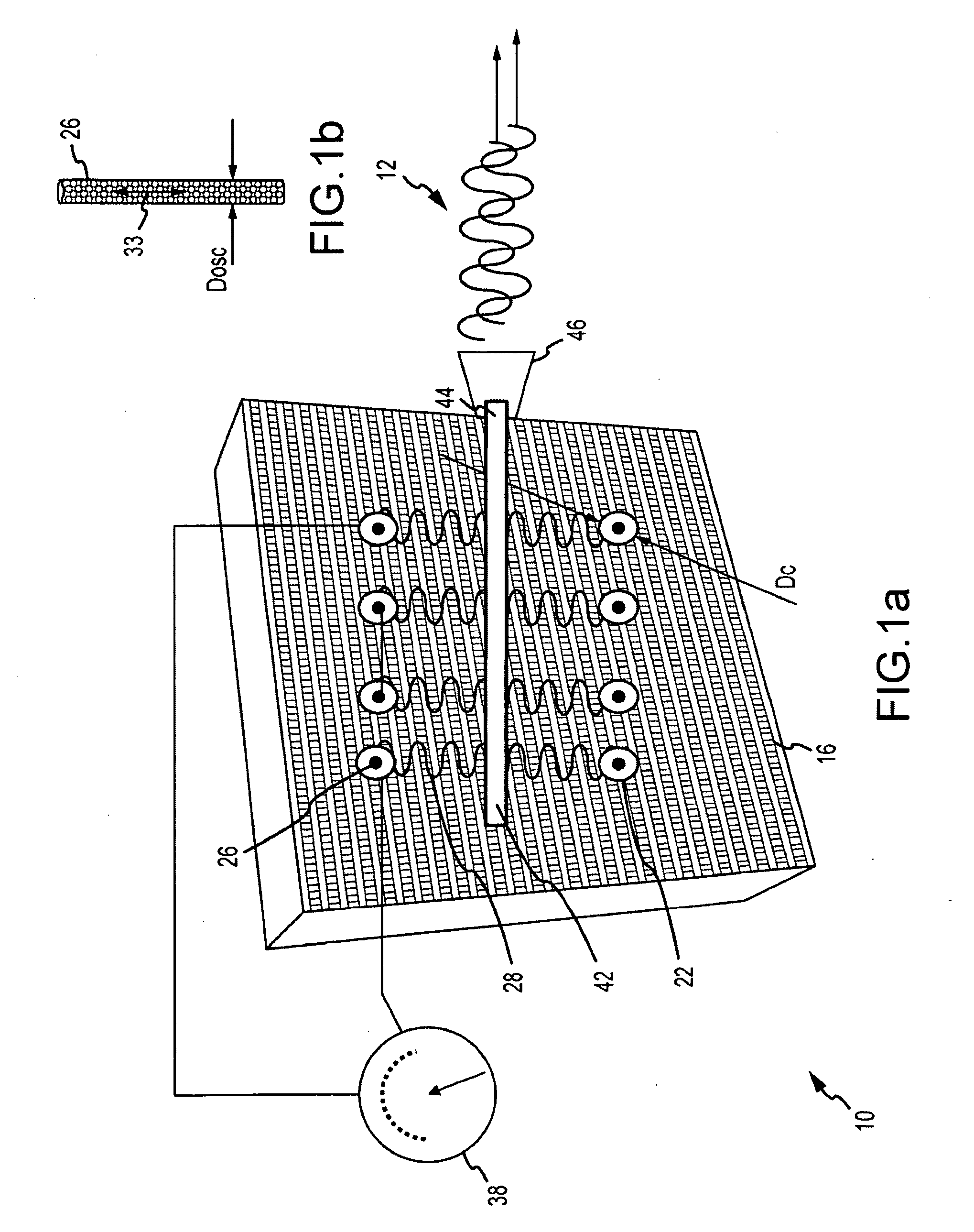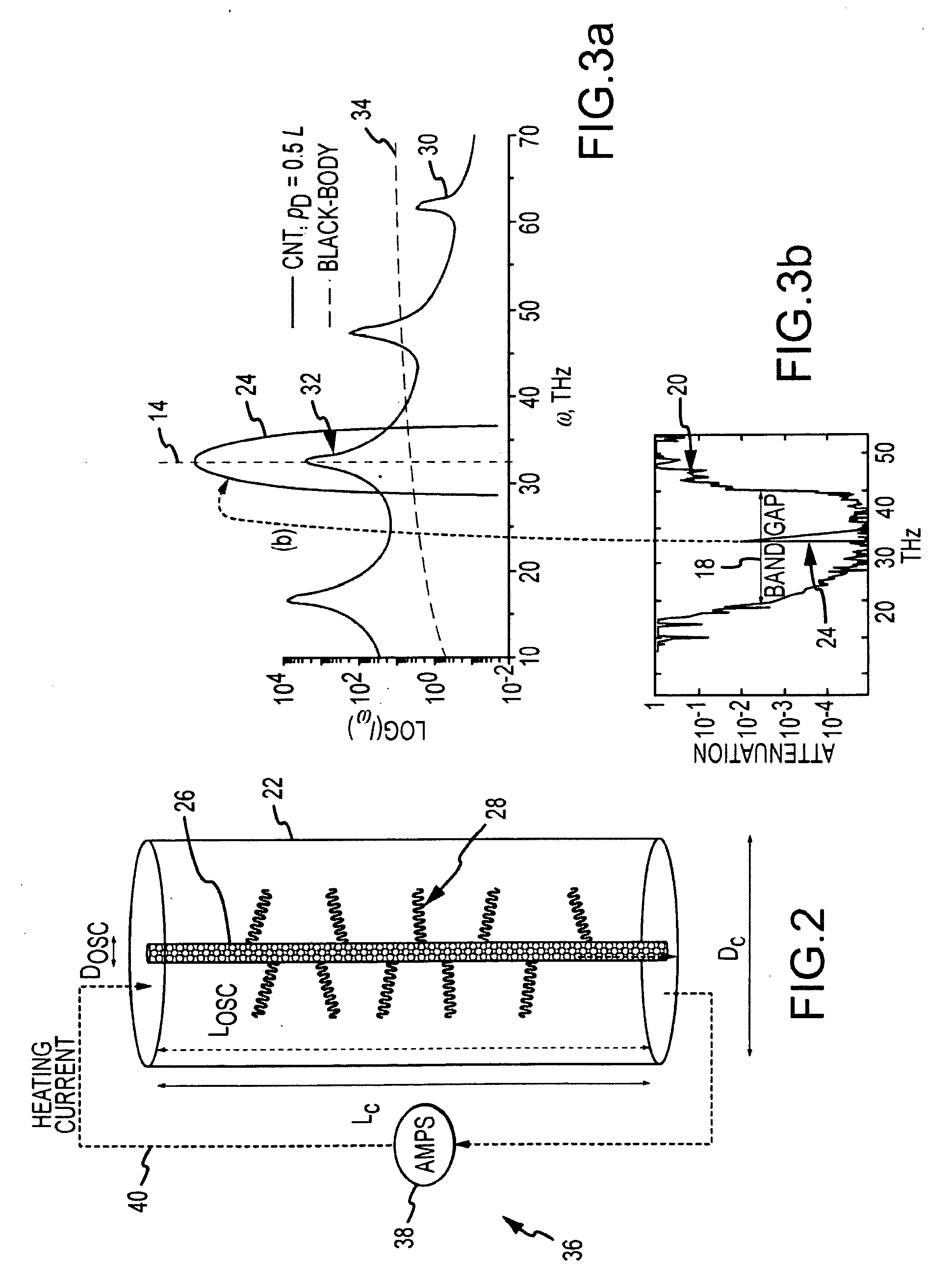Thermally powered low dimensional nano-scale oscillators in coupled micro-scale photonic crystal resonant defect cavities for generation of terahertz or infrared radiation
a micro-scale photonic crystal and nano-scale oscillator technology, applied in the field of thermally powered terahertz (thz) and infrared (ir) radiation sources, can solve the problems of limited output power of conventional thz sources, atmospheric attenuation, and complex optical networks and cooling systems. achieve the effect of efficient generation, coupling and transmission of electromagnetic radiation
- Summary
- Abstract
- Description
- Claims
- Application Information
AI Technical Summary
Benefits of technology
Problems solved by technology
Method used
Image
Examples
Embodiment Construction
[0027]The present invention describes a thermally powered source of IR or THz radiation that combines low dimension nano-scale oscillators such as nano-wires and nano-tubes with micro-scale photonic crystal resonant cavities for efficient generation, coupling and transmission of electromagnetic radiation. The oscillators have M=0, 1 or 2 resonant dimensions on a micro-scale (approximately 1 um to approximately 1 mm) to emit radiation having a local peak at a desired wavelength in the IR or THz regions. The oscillators have at least one non-resonant dimension on a nano-scale (less than approximately 100 nm) to suppress vibration modes in that dimension and channel more thermal energy into the local peak. The photonic crystal defect cavities have N=1, 2 or 3 (N>M) resonant dimensions on the micro scale with lengths comparable to the length of the oscillator and the desired wavelength to exhibit a cavity resonant that overlaps the local peak to accept and transmit emitted radiation. Th...
PUM
 Login to View More
Login to View More Abstract
Description
Claims
Application Information
 Login to View More
Login to View More - R&D
- Intellectual Property
- Life Sciences
- Materials
- Tech Scout
- Unparalleled Data Quality
- Higher Quality Content
- 60% Fewer Hallucinations
Browse by: Latest US Patents, China's latest patents, Technical Efficacy Thesaurus, Application Domain, Technology Topic, Popular Technical Reports.
© 2025 PatSnap. All rights reserved.Legal|Privacy policy|Modern Slavery Act Transparency Statement|Sitemap|About US| Contact US: help@patsnap.com



